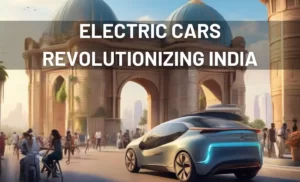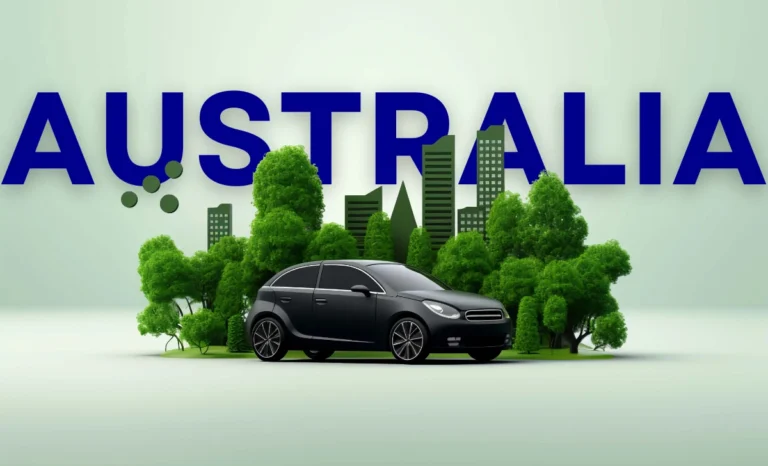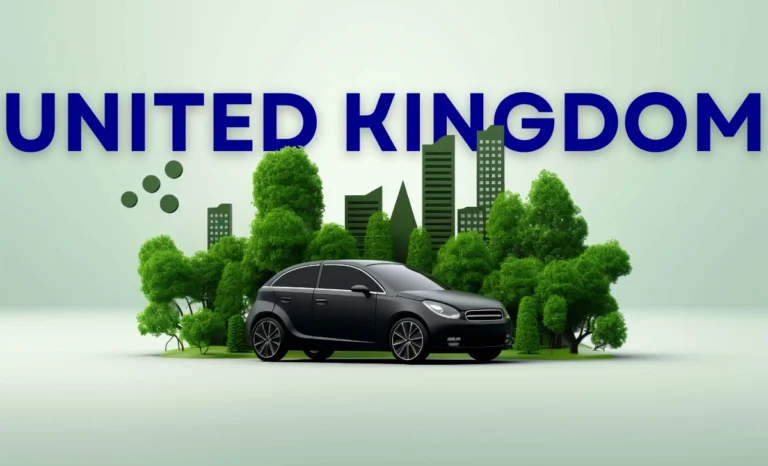If you’re interested in the latest developments in the world of electric cars, you’ll be pleased to know that India is set to launch a range of new models in 2024. The country is taking significant steps towards reducing its carbon footprint, and the launch of these cars is a crucial part of this initiative. With top automakers such as Maruti Suzuki, Tata Motors, Kia, and Hyundai all set to release new electric cars, it’s an exciting time for the industry.

One of the most anticipated electric cars set to be launched in India in 2024 is the Maruti eVX. This model is expected to be a game-changer, with its impressive range and advanced features. Another highly anticipated car is the Creta EV, which is set to be released by Hyundai. This model is expected to be a popular choice among car buyers due to its sleek design and excellent performance.
The launch of these electric cars is part of a broader push towards sustainability in India. The country is committed to reducing its carbon footprint and is taking significant steps towards this goal. With the launch of these new models, it’s clear that the Indian automotive industry is moving towards a greener future.
In this article
- 1 In this article
- 2 Indian Electric Car Market: A Growing Landscape
- 3 Anticipated Electric Car Categories: Budget-Friendly, Mid-Range, and Luxury
- 4 Innovations in Upcoming Electric Cars: Batteries, Autonomy, and Connectivity
- 5 Rapidly Developing Charging Infrastructure in India
- 6 Factors Driving Electric Car Purchases in India
- 7 Environmental Impact of Electric Cars: Emissions Reduction and Sustainability
- 8 Challenges and Considerations in Electric Car Adoption
- 9 Bright Future: Outlook for Upcoming Electric Cars in India
- 10 Footnotes
In this article
Indian Electric Car Market: A Growing Landscape

Current Landscape
The Indian electric car market is rapidly expanding, with a growing number of electric vehicles being introduced by car manufacturers. Major players such as Tata Motors, Mahindra & Mahindra, and MG Motor India are investing heavily in the development of electric cars, with a range of models set to hit the market in the upcoming year. As of 2023, there are over 10 lakh electric vehicles on Indian roads, and this number is expected to grow significantly in the coming years.
Growth Projections
According to the India Energy Storage Alliance (IESA), the electric vehicle market in India is expected to hit over 63 lakh unit mark per annum by 2027. The domestic electric vehicle market is expected to grow at a compound annual growth rate (CAGR) of 49 percent between 2022 and 2030 and is expected to hit one crore units of annual sales by 2030. This indicates a substantial surge from the 6,90,550 electric two-wheelers (E2Ws) sold in 2022 to a staggering 1,39,36,691 E2Ws expected to hit the Indian roads by 2030.
India’s Electric Vehicle Future: Growth Projections and Government Policies
The Indian government is committed to promoting the adoption of electric vehicles and has introduced several policies and incentives to encourage their use. The Faster Adoption and Manufacturing of Electric Vehicles (FAME) scheme, launched in 2015, provides financial incentives to buyers of electric vehicles. The scheme has been extended several times, most recently in 2021, and now covers a wider range of electric vehicles, including two-wheelers, three-wheelers, and buses. Additionally, the government has announced plans to build a network of charging stations across the country, which will help to address one of the key challenges facing the adoption of electric vehicles.
Overall, the Indian electric car market is poised for significant growth in the coming years, driven by a combination of government policies, growing consumer demand, and the entry of new players in the market. With a range of new electric vehicles set to hit the market in the upcoming year, the future looks bright for electric cars in India.
Anticipated Electric Car Categories: Budget-Friendly, Mid-Range, and Luxury
When it comes to upcoming electric cars in India, there is a diverse range of models set to hit the market shortly. These upcoming models can be categorized into budget-friendly, mid-range, and luxury electric cars, each offering unique features and specifications to cater to different consumer preferences.
Budget-Friendly Electric Cars
For those seeking an affordable electric car option, several models are expected to launch in the budget-friendly segment. These cars are designed to provide eco-friendly transportation at an accessible price point, making electric vehicles more attainable for a wider audience. Keep an eye out for budget-friendly models such as the Tata Tigor EV and Mahindra eKUV100, offering efficient electric mobility without breaking the bank.
Mid-Range Electric Cars
Moving up the spectrum, mid-range electric cars offer a balance of affordability and enhanced features. With upcoming models like the Hyundai Ioniq 5 and the MG ZS EV, you can expect a blend of advanced technology, extended range, and modern design, making them suitable for urban commuting and longer journeys.
Luxury Electric Cars
For those with a penchant for luxury and sophistication, the upcoming luxury electric cars are set to deliver an unparalleled driving experience. Keep an eye out for models such as the Audi e-tron, Mercedes-Benz EQC, and the Jaguar I-PACE, which boast premium amenities, cutting-edge technology, and impressive performance, redefining the concept of electric luxury vehicles in the Indian market.
As the electric vehicle landscape continues to evolve, these upcoming models represent a significant step towards the widespread adoption of electric cars in India, offering a diverse range of options to cater to varying consumer needs and preferences.
Innovations in Upcoming Electric Cars: Batteries, Autonomy, and Connectivity

When it comes to upcoming electric cars in India, there are several exciting features and innovations to look forward to. Here are some of the most noteworthy ones:
Battery Technology
One of the most important aspects of electric cars is their battery technology. Fortunately, many of the upcoming models are set to feature advanced batteries that offer improved range and performance. For example, the Tata Curvv EV is expected to have an impressive estimated range of around 500 km. Additionally, the Audi Q6 e-tron is set to be based on Audi’s newly developed Premium Platform Electric (PPE), which features advanced battery technology.
Autonomous Driving Features
Another exciting area of innovation in electric cars is autonomous driving. While fully self-driving cars may still be a ways off, many upcoming models will feature advanced driver assistance systems (ADAS) that can help with tasks like lane keeping and adaptive cruise control. The Maruti eVX, for example, is anticipated to include ADAS.
Connectivity and Infotainment
Finally, many upcoming electric cars will feature advanced connectivity and infotainment systems. This includes features like dual-screen setups and 360-degree cameras. For example, the Maruti eVX is expected to have a dual-screen setup. Additionally, the Audi Q6 e-tron is set to include a “virtual cockpit” display.
Overall, the upcoming electric cars in India are set to feature a range of exciting features and innovations that will make them a compelling option for many drivers.
[Also] From Tata Punch EV to Creta EV: Upcoming electric cars in India in 2024
Rapidly Developing Charging Infrastructure in India
One of the biggest concerns for electric car owners is charging infrastructure. Fortunately, India is rapidly developing its charging infrastructure network to support the growing number of electric cars on the road.
Public Charging Stations
Public charging stations are an essential component of the charging infrastructure for electric cars in India. The government has set a target to electrify 70% of all commercial vehicles, 30% of private cars, 40% of buses, and 80% of two-wheeler and three-wheeler sales by 2030. To achieve this target, the government is planning to install 400,000 charging stations across the country.
There are already several public charging stations available in major cities like Delhi, Mumbai, and Bengaluru. These charging stations are usually located in public areas like shopping malls, parking lots, and petrol stations. The government is also planning to install charging stations on highways to enable long-distance travel for electric car owners.
Home Charging Solutions
Home charging solutions are another important aspect of the charging infrastructure for electric cars in India. Most electric cars come with a portable charger that can be plugged into a standard 15-amp socket. However, this charging method is slow and not suitable for daily use.
To charge your electric car at home quickly, you will need to install a dedicated home charging station. These charging stations are usually wall-mounted and can charge your car in a few hours. You can also install solar panels to generate your electricity and charge your car for free.
In conclusion, the charging infrastructure for electric cars in India is rapidly developing, and the government is taking steps to support the growth of electric cars. With the installation of public charging stations and home charging solutions, owning an electric car in India is becoming more convenient and accessible.
Factors Driving Electric Car Purchases in India
Purchase Drivers
When considering the purchase of an electric car in India, consumers are primarily driven by factors such as environmental consciousness, lower operating costs, and government incentives. The desire to reduce carbon emissions and contribute to a cleaner environment is a significant motivator for many prospective buyers. Additionally, the lower maintenance and operational expenses of electric vehicles compared to traditional cars play a crucial role in the decision-making process. Government initiatives, such as subsidies and tax benefits for electric vehicle owners, also influence purchase decisions.
Range Anxiety and Solutions
One of the key concerns for potential electric car buyers in India is range anxiety, which refers to the fear of running out of battery charge while on the road. Manufacturers and policymakers are addressing this issue by expanding the charging infrastructure across the country. Advancements in battery technology, resulting in extended driving ranges, are also alleviating range anxiety. Moreover, the availability of fast-charging stations and home charging solutions is contributing to increased confidence in the practicality of electric vehicles for everyday use.
Environmental Impact of Electric Cars: Emissions Reduction and Sustainability
Electric cars are often touted as a greener alternative to traditional gasoline-powered vehicles. With zero tailpipe emissions, electric cars have the potential to significantly reduce air pollution and greenhouse gas emissions, making them an attractive option for environmentally conscious consumers.
Emission Reduction
Electric cars in India are expected to make a significant contribution to reducing air pollution and greenhouse gas emissions. According to a report by the National Institution for Transforming India (NITI Aayog), electric vehicles (EVs) could potentially reduce India’s carbon emissions by 37% by 2030.
In addition, the report estimates that EVs could reduce nitrogen oxide emissions by 80-90% and particulate matter emissions by 50-90%, compared to gasoline-powered vehicles. This reduction in emissions could have a significant impact on air quality in India’s cities, which are among the most polluted in the world.
Sustainable Manufacturing
Electric cars in India also have the potential to reduce the environmental impact of vehicle manufacturing. The production of traditional gasoline-powered vehicles is resource-intensive and generates a significant amount of waste and pollution.
In contrast, electric cars have the potential to be manufactured using more sustainable materials and processes. For example, the batteries used in electric cars can be recycled, reducing the amount of waste generated by the manufacturing process. In addition, the use of renewable energy sources such as solar and wind power to charge electric cars can further reduce their environmental impact.
Overall, the environmental impact of electric cars in India is expected to be positive, with the potential to significantly reduce air pollution and greenhouse gas emissions. As the market for electric cars continues to grow, it will be important to ensure that the manufacturing and disposal processes are as sustainable as possible, to minimize the environmental impact of these vehicles.
Challenges and Considerations in Electric Car Adoption
When it comes to the adoption of electric cars in India, certain challenges and considerations must be taken into account. In this section, we will explore some of the technological and market barriers that may impact the growth of the electric car market in India.
Technological Challenges
One of the primary challenges facing the electric car market in India is the lack of charging infrastructure. While the government has set a target of installing 2.5 lakh charging stations across the country by 2030, there are currently only a few thousand charging stations in operation. This makes it difficult for electric car owners to travel long distances or even find a charging station in their local area.
Another technological challenge is the limited range of electric cars. While some models can travel up to 400 km on a single charge, most have a range of around 150-200 km. This can be a barrier for those who need to travel long distances regularly.
Market Barriers
One of the biggest market barriers for electric cars in India is the high cost of purchase. While the cost of electric cars has been decreasing over the years, they are still significantly more expensive than their petrol or diesel counterparts. This can make it difficult for the average consumer to justify the higher upfront cost, even with the long-term savings on fuel and maintenance.
Another market barrier is the lack of consumer awareness and education about electric cars. Many people are still skeptical about the technology and may not understand the benefits of owning an electric car. This can make it difficult for manufacturers to sell their products and for the market to grow.
Overall, while there are certainly challenges facing the electric car market in India, there are also many opportunities for growth and innovation. As the government continues to invest in charging infrastructure and manufacturers work to improve the technology and reduce costs, we can expect to see a significant increase in the adoption of electric cars in the coming years.
Bright Future: Outlook for Upcoming Electric Cars in India

As the Indian government continues to push for the adoption of electric vehicles, the future looks bright for this segment of the automobile industry. With technological advancements and market trends, the upcoming electric cars in India are set to revolutionize the way we commute.
Technological Advancements
The upcoming electric cars in India are expected to come with advanced features and technologies that will enhance the driving experience. For instance, some of the upcoming models will have a range of over 500 km on a single charge, making them ideal for long-distance travel. Additionally, many of these cars will come with fast-charging capabilities, allowing you to charge your vehicle in a matter of minutes.
Another technological advancement that upcoming electric cars in India will come with is the use of artificial intelligence (AI) and machine learning (ML) technologies. These technologies will enable the cars to learn from your driving habits and adjust their performance accordingly. For instance, your car could automatically adjust its speed and acceleration based on the traffic conditions around you.
Market Trends
The Indian electric vehicle market is expected to grow at a rapid pace in the coming years. According to a report by Bain & Company, India’s electric vehicle market is expected to grow at a CAGR of 44% between 2022 and 2026. This growth will be driven by factors such as government incentives, rising fuel prices, and increasing environmental awareness.
As a result of this growth, many automakers are expected to launch their electric vehicles in India in the coming years. Some of the upcoming electric cars in India include the Tata Nexon EV, MG ZS EV, and Hyundai Kona Electric, among others. These cars are expected to offer a range of features and technologies that will make them popular among Indian consumers.
In conclusion, the future outlook for upcoming electric cars in India is positive. With technological advancements and market trends, these cars are set to become popular among Indian consumers. Whether you are looking for a car for your daily commute or long-distance travel, there will be an electric car that meets your needs.




